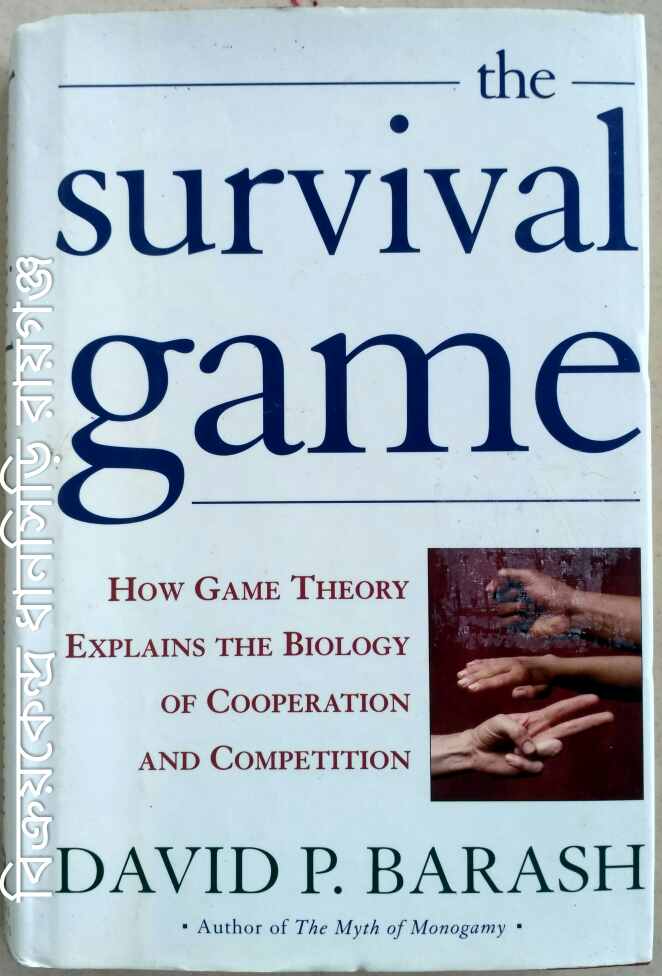Description
“A fascinating book. Barash shows how the mathematical theory of games can shed llight on why we (and some of our fellow creatures) often act the way we do,why seemingly illogical acts may in fact be perfectly rational when viewed in the appropriate way, and why even the least competitive among us is at heart driven by being a winner.”Humans, like bacteria, woodchucks, chimpanzees,and other animals,compete or cooperate to get food, shelter, territory, and other resources. But how do we decide whether to muscle out or team up with the competition?In The Survival Game, David P. Harash syn thesis the newest ideas from the exciting world of game theory-an amalgam of logic, psychology, economics, and biology to ex plore and explain why people make the deci sions they doc the give-and-take of spouses in determining an evening’s plans, the behavior of investors in a market bubble, the maneuvers of generals on a buttlefield, all of which are re: markably similar to the mating and fighting strategies of “less rational animals. Barsa de scribes the classic Prisoner’s Dilemma of game theory, in which a decision can carry a heavy price when there’s no way to know if your part ner will stick with you or look out for his own interests, and finds that an RNA virus behaves by the same rules. In the Hawk-Dove Game, he looks at how players change their strategies to be either aggressive or yielding-when a third person enters the picture, and draws anal ogies to the territorial battles among speckled wood butterflies. And notorious strategies arising from the Game of Chicken, tit-for-tat, and follow the leader turn up in example as dis parate as World War Ii submarine war and the mating antics of the yellow dung fly, In this lively and engrossing book,Barash ultimately sheds light on what makes our decisions human and what we can glean from game theory and the natural world as we negotiate and compete with others in our daily lives.Game theory violates one of the most beloved American myths: the rugged individualist, the notion that success comes to those who go out on their own and grab it by the scruff of the neck, wrenching wealth and happiness from the world, without regard to what anyone else does, or cares. Think of Arthur Miller’s play Death of a Salesman, in which we learn briefly of Willy Loman’s brother Ben, who went off to the wilds of Africa: “When I walked into the jungle, I was seventeen. When I walked out I was twenty-one. And, by God, I was rich!” It didn’t matter whether there were any native Africans, whether Ben had any partners or victims. Ben Loman “made it,” and he did so all by himself. It is a useful if inaccurate-image for a growing country, expanding into a rich continent. Think of the rugged frontiersmen (and -women), carving a nation out of the wilderness, reveling in liberty and pursuing happiness. Or of the gunslinger, or the Wild West marshal. But even here a kind of game intervenes. Call it the Gunslinger Game. Two gunfighters walk slowly toward each other in the dusty street. The outcome for each clearly depends not only on what he does, but on the other’s action, too. Neither wants to get shot; each wants to shoot other.




Be the first to review “The Survival Game (How Game Theory Explains the Biology of Cooperation and Competition) -David P. Barash”
You must be logged in to post a comment.